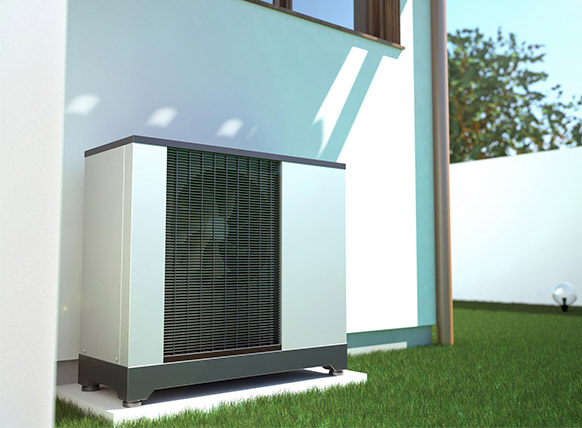

Alternative ways to heat your home
The way we heat our homes is changing fast. By 2025, gas boilers will be banned in all new build homes across the UK1 so now could be a great time to explore alternative ways to heat your home.


Why do we need to come off gas?
Home heating makes up 14% of the UK's carbon emissions, with 80% of homes still running on gas2. However, gas boilers are a major part of the UK's carbon footprint, and they are polluting, too.
One study3 found that Britain's gas boilers warmed the climate twice as much as the UK's gas-fired power stations, not to mention emitting eight times as much nitrogen dioxide, a pollutant that can cause respiratory problems.
So choosing lower carbon heating solutions is key if the UK is to meet its climate target of cutting emissions at least 68% below 1990 levels by 20304.
Getting the basics right
Before you look at switching over your home heating, it's worth ensuring that you already have the basics right. In fact, some of the most sustainable heating solutions are the simplest ones.
Set the temperature low in rooms that aren't being used, and keep doors closed to prevent heat loss. Open your curtains during the day to get the maximum benefit from the sun's warmth and shut them at night to help keep warmth in. And, of course, ensure your home is properly draught-proofed and insulated.
With those basics in place, you can start to research the best alternative home heating options.


Alternatives to your gas boiler
Modern gas boilers are highly efficient and for certain types of homes they remain the best solution. Although they run on a fossil fuel they are cleaner and more efficient than oil-powered systems or older gas boilers. Installing a new boiler will mean that you’re using less gas to heat your home and provide hot water than with an older boiler and producing lower levels of emissions too.
Some of the other alternative home heating options, such as hydrogen boilers and microwave boilers, are not yet on the market. So, the best alternative to gas central heating right now is heat pumps.
Heat pumps are systems that work roughly like your fridge, only in reverse. Your fridge draws coldness from the air around it and intensifies it to keep things cool inside the fridge. While an air source heat pump draws heat from the air around it and concentrates it to keep you warm. And a ground source heat pump, as the name suggests, takes heat from the soil.
The advantages of an air source heat pump
The benefits of an air source heat pump include that they're lower carbon, environmentally friendly and energy efficicient, making them a great alterative to gas boilers, provided that your home is already efficient and well insulated. They also generally have a longer lifespan and require less maintenance than a gas boiler.
Amazingly, air source heat pumps can even work in temperatures as low as -15°C5, although we rarely see temperatures this low in the UK.
Heat pumps are such an easy way to reduce the carbon footprint of well-insulated homes that, from later this spring, the UK government is launching its Boiler Upgrade Scheme (BUS) to encourage low-carbon heating solutions, mainly heat pumps. Under the new scheme, the government will offer homeowners £5,000 towards the cost of replacing their existing heating system with a high efficiency heat pump6.
Choosing to heat your home with an air source heat pump is just one way you can live more sustainably. There are plenty of other sustainable solutions for your home that can help you to take action for climate.
1. BBC News: Gas heating ban for new homes from 2025
2. The Guardian: UK government ‘failing’ to cut carbon emissions from home heating
3. The Guardian: UK’s home gas boilers emit twice as much CO2 as all power stations – study
4. Gov.uk: The UK’s Nationally Determined Contribution under the Paris Agreement
5. Energy Saving Trust: Air source heat pumps vs ground source heat pumps
6. Gov.uk press release: Plan to drive down the cost of clean heat (18/10/21)


Our blog
Read our latest blogs to discover how E.ON is leading the energy transition through smart and sustainable solutions.


Power your home with renewable energy
Choosing renewable energy sources for your electricity and heating can make your home more sustainable. So we’ve explored the different ways you can power your home with renewable energy.


Air source heat pumps
Get heat from thin air, for a clean way to heat your home.
